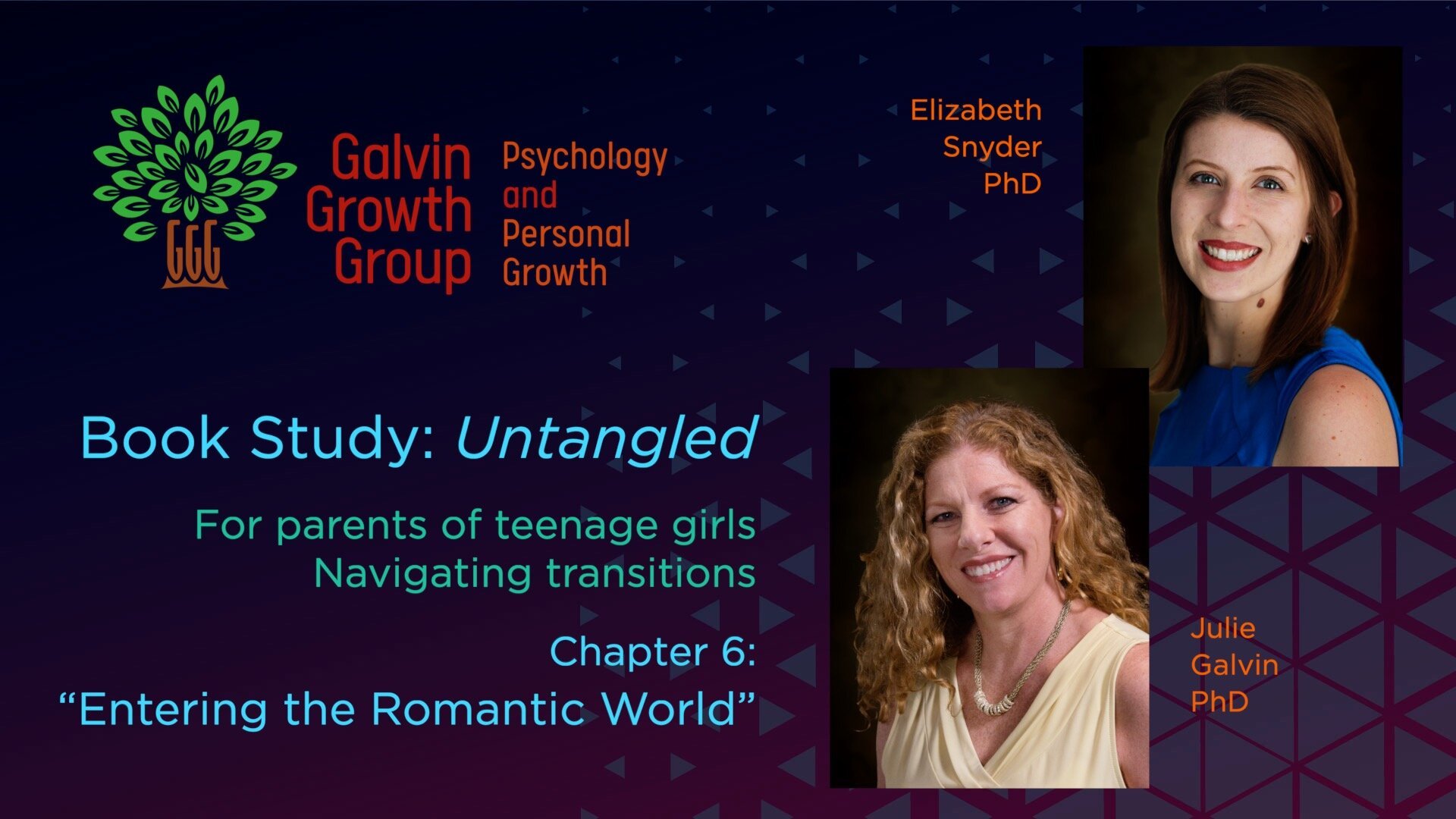
04 Aug Parenting Teenage Girls Video Series- Week 7
Untangled: Chapter 6-Entering the Romantic World
Last week, Dr. Galvin and Dr. Snyder shared thoughtful insight into Lisa Damour’s book, Untangled. They talked about the importance of dealing with certain behaviors and the infamous eye roll. This week, we will be diving into “Entering the Romantic World” and the fast movement that takes place within young girls’ development.
Some important things discussed in this chapter:
-
What influences girls towards romance in the first place?
-
This is different for most girls, so it is good to sit down and have a conversation about it.
-
-
A match made in a marketing meeting
-
This is a very safe stage. Many girls are attracted to certain “types” of famous people that are usually thought up in a sort of marketing meeting.
-
-
Offering some perspective
-
Girls get confused as to how they should conduct themselves because of the contradictory messages displayed in the media.
-
-
Inner compass
-
We have 3 jobs as parents to help our daughter understand her inner compass:
-
Let her know she has an inner compass
-
Support her in asking for what she wants
-
Make sure she knows how to express what she doesn’t want
-
-
-
Dating for credit
-
There is a sexual double standard with popularity that fluctuates with age. Boys might be seen as “cool” and girls might be considered “slutty”
-
-
Being gay
-
Kids who make fun of others for being “gay” might actually be struggling with their own sexuality.
-
They are more likely to tell their friends before you, so if they do tell you, we should try to be as accepting as possible.
-
It’s HER identity, not YOURS.
-
-
When to worry:
-
The girl who makes no attempt to enter the romantic world
-
The tributaries and the lake
-
April-June romances
-
Perusing and/or dating adults
-
Buy the Book
In the coming week’s video, Dr. Galvin and Dr. Snyder will explore other transitions into adulthood:
“Caring for Herself”
If any of these issues persist or worsen, consider having your child talk with a therapist. Contact us at (734) 323-4897 or info@galvingrowthgroup.com for more information.
By: Grace O’Neill

